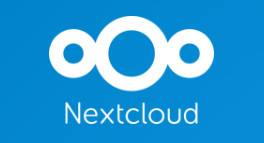Disclosure: Privacy Australia is community-supported. We may earn a commission when you buy a VPN through one of our links. Learn more.
Best Business Cloud Storage

If you knew that a burglar was targeting your business to break into it and steal your work, you would probably call the cops in advance of this happening.
At the very least, you would invest in new locks on the doors and iron bars over your windows. You would do something to avert the coming disaster.
The thing that most people do not realize is, disaster can come at any time. If a burglar was targeting your business, you would not know.
If you were one click of a bad link away from an employee compromising your business’ network, then that click would feel just like any other.
What that means is that you should be preparing no matter what. Preparing for lost or stolen work, preparing for lost or stolen computers, and preparing for human error.
But how can a business prepare for these things? Simple: With a cloud storage system. But cloud storage for business is a lot different from cloud storage for individuals. Let’s start by talking about a few things businesses need out of it.
Table of Contents:
- What is Cloud Storage
- What is Unique About Business Backup Services
- 5 Best Online Cloud Storage Services
What is Cloud Storage? ☁️

Think of your computer. It stores things on a hard drive. And that means if something happens to that hard drive or the computer that holds it, you lose everything on it. But if you email something to someone, then the data enclosed in that email is not lost. Even if the hard drive is lost, the email is sent.
Where is the data enclosed into that email? It is on the server of the email service you used to send it. This means that it is on “the cloud”, essentially meaning that it is in multiple places at once.
You cannot back up every file on your computer by emailing it. Or rather, you can, but it would take an impractically long time. Cloud backup services exist to make that process much easier.
What is Unique About Business Backup Services? 🗃️

When an individual person gets a backup service, they only need a few features. It can be pretty barebones, usually just offering them an amount of storage space, the ability to automatically reupload files on a schedule, and maybe a virus scan. Anything else is considered somewhat of an extra luxury.
But for businesses, things are different. While an individual will use two terabytes of space at the absolute most (that is if they are backing up their whole computer), a business will need to be able to back up several terabytes of data. This is because project files can be huge.
And not only that, but a business needs to be able to organize and share these files. This is not even mentioning the security and team organization tools that a business can make use of even if they are not critical to the running of the business.
In short, businesses need a lot more. What we are going to do is go over the top 5 best online cloud storage services for businesses to help you pick one that works.
1. Microsoft OneDrive – Best Overall Business Cloud Storage
Fortunately, the best in the business when it comes to cloud storage for businesses is a highly recognizable name.
This is good, as it means that it does not take much convincing to get people unfamiliar with the system to use it (a common struggle for many people implementing this).

If there is one thing that the designers of Microsoft OneDrive know, it is the fact that people are often more familiar with the Microsoft name than with the computers and software that they make.
It is for this reason that OneDrive has two things going for it: It has lots of features, and it is easy to use.
This is not an easy balance to strike. The main thing that keeps it easy to use is that it is basically built into every PC to start with. There are folders in a PC that will automatically back their contents up to OneDrive. Even if you are on Mac, you can get these folders set up pretty quickly and start using them.
This makes it one of the few cloud storage services that does not even need a desktop application to back up your files. It does need you to interface with the desktop app in order for you to share files, but that is made easy as well. You can share files by sending a link, or by sending the whole file.
And for businesses that are organizing projects together, you can have multiple computers that upload their files to the same online drive. This makes it even easier to share files since other users will be able to just pull them straight from the drive, with additional tools for organizing them.
Drawbacks 👎️
While OneDrive gives you lots of tools for storing, organizing, and sharing files easily, it has one Achilles’ Heel that might not be readily obvious: Security. This is something that far too few businesses think of.
There is no virus scan, no URL blocking, no vulnerability analysis, and in general nothing offered to you to help you keep your business secure through the computers you use. And you might say, “Well, what about Windows Firewall?” There are two reasons why we do not consider Windows Firewall here.
To begin with, it is a different program. If we are considering it as an advantage for OneDrive we might as well consider it an advantage for every program. And at that point, it is not in OneDrive’s favour.
But the second reason it should not be considered as covering the weakness of OneDrive’s security is that it doesn’t. Windows Firewall is the most common first and last line of defence for computer users.
As a result, it is the one that hackers are the most familiar with cracking. In short, OneDrive’s biggest issue is that for all the convenience it offers, you will definitely need another program to help with security.
Pros
- Easy to use, even coming installed on many new computers
- Loads of space and organization tools
- Free to start with, and cheap for more advanced tools
Cons
- No security features at all
2. Dropbox – Best Business Cloud Storage for Versioning
One of the reasons businesses need so much space is that not only are most project files big, whether they are for video editing or app development, but many companies will need to keep old files around.
If you are building an app, then a lot can change from one version to the next. But the most important thing that can change is its stability.

You might be developing an app and find out after three iterations that all three of those iterations are fundamentally flawed, and that the only fix is turning the clock back.
Some developers are smart enough to keep around entire old builds of apps in that way. But once a project gets large enough, doing that can be difficult. That is where cloud storage can help. The thing is though that not all cloud storage systems excel at this form of storage, as it is rather unique.
Dropbox is an old name in online file storage, and for that reason they have a lot of experience covering weird niches. This is very much one of them, as it is an online storage system built by and for programmers. Does that mean it is only useful for programmers? Absolutely not. What it means is that it was designed for the most advanced uses of a computer and the files that need the most attention.
As a result, it can handle just about anything you can throw at it. You can have multiple versions of a whole team’s project, as well as administrative tools for designated team leaders. These tools allow them to check on what files their team is working with and how they are organized.
Advanced versions of Dropbox even give you security tools. These tools start with encryption but can also include remotely activated (or scheduled) virus scans of both the files being uploaded and the computers that they are uploaded from. You never need to rely on an employee to do these things.
Drawbacks 👎️
Something you may have picked up on when we brought up security is that it is part of an “advanced version” of Dropbox. That is because all of the security features that Dropbox offers are locked behind a more expensive version. And indeed, Dropbox’s business package is on the more expensive side.
This is not a huge problem for many businesses; a cloud storage system for a business does not need to be as cheap as a cloud storage system for an individual. But you are paying that higher rate for each individual user while only getting one security package out of it. Some people won’t like that.
Pros
- Advanced versioning to allow you to turn back to clock
- Lots of organizational tools
- Security features are excellent
Cons
- Many features locked behind more expensive plans
3. iDrive – Best Business Cloud Storage for Versatility
iDrive has two cloud storage plans that benefit businesses: Their Team plan and their Business plan.
Both of them are good, with Team being focused on small groups within a company, while Business is focused on getting the tools spread out over an entire company.

It is worth noting that they both cost the same amount of money per month. Team allows you 5 users and computers, whereas Business allows you unlimited users and computers. Not only that, but iDrive also has different management features within each plan. The differences between the plans are very much a matter of kind, not quality, so we will be going over both of them as we talk about iDrive.
iDrive Team
The main feature of iDrive Team that sets it apart is its Dashboard. This dashboard allows a team leader to plan assignments and facilitate file sharing between users. What does that mean? Well, imagine you are assigning a team member some work. You do not have to keep that assignment purely verbal.
The iDrive Teams Dashboard lets you create an assignment with a specific outline and give your team member or employee a specific place for them to upload their work to be delivered to you. This makes it easy for both of you to correspond without having to hold a meeting, while still exchanging data.
And on top of that, you can even send files from one team member to another. Everyone on the team can access each other’s files if you want, or you can set up specific partitions. It’s up to you.
iDrive Business
On the business side of things, iDrive does not have an individual dashboard. Instead of going deep on five people, it goes wide. That means giving you access to basically unlimited space for unlimited users, all of whom have access to backups of not just normal data, but also server data.
That means if you are managing a website or doing anything else that requires a huge amount of data processing to be done, then you can offload that onto the unlimited space that iDrive gives you.
Drawbacks 👎️
Someone who does not work in a software or web development team will probably pick up on the fact that iDrive is very much for advanced users. Most of its features for both teams and businesses are geared towards making them work better in highly technical environments.
But the thing about business cloud storage is that there really is no easy way to do it. The person who organizes the storage of a whole business will frequently be the go-to tech person of that business. As long as the interface works for the individual users, the gritty details can get away with being complex.
That is true in most cases, but iDrive’s Team interface is definitely a situation where things are a little more complicated for the average user, making it best for whole teams of go-to tech people.
Pros
- Two identically priced plans that cover a lot of options
- Team’s Dashboard allows a smooth workflow
- Business unique data handling allows you to offload server processes to it
Cons
- Definitely one of the more complicated services
4. Tresorit – Best Business Cloud Storage Privacy
Your cloud storage service does not need to come with privacy and security options. It does not need to scan for viruses in order to host your files, and it does not need to encrypt the data that you store.
But for some industries, it is basically pointless to store anything if it is not locked down tight.

Tresorit is a new name in the cloud storage business, but it has become the service of choice for any business working in social media. This is because of their own protocols for encrypting their users’ data, but there is something even more real-world than that at play with them: They are based in Switzerland.
Switzerland is famous for their neutrality in World War 2, but their neutrality actually goes even deeper than that one period of history. Whether it is the activity of money stored in a bank or data stored in a server, Switzerland will not make information under their control privy to outside investigations.
What does that mean? Simple: While Tresorit’s encryption keeps hackers from prying into your data, the nation of Switzerland keeps other countries from prying. Whether it is China, Russia, or the United States, Switzerland will not give up data unless it is related to a crime that is also a crime in Switzerland.
They also have all of the normal file sharing features on top of that, with lots of space and a good interface. The interface they provide you with is designed to make teams easy to manage, throwing alerts at you should there ever be a conflict between even the most distant file versions.
Drawbacks 👎️
While the privacy and security Tresorit offers are both great, their service can feel light on features outside of that. It has acceptable management tools, but nothing that exceptional.
The security is very much the reason people use Tresorit. It is not that its other features are bad, simply that they are not going to jump up and grab you. They are so under-the-hood that you might not even know that you can upload certain (normally exotic) data to their servers.
Pros
- Highly secure and private
- Clean interface
- Allows you to process server data of all kinds
Cons
- The actually usable features are scarcer than you might expect
5. Nextcloud – Best Cloud Storage for Frequent Updates
Let’s get the obvious question out of the way: When we say Nextcloud is the best for “frequent updates”, does that mean it is the best for frequently updating the files you upload onto their servers, or the best for having a service that is frequently updated itself?
That is a wordy question, but the answer is both. Nextcloud was made with iteration in mind.

While some companies will upload their files and let them sit still on the cloud, most will upload their files as a process of iterating on a single project. But that process can create conflicts in the files.
Nextcloud employs a system of alerts and organization, both for individual users and designated administrators, that helps keep new files from disrupting the organization of old files.
And on top of that, Nextcloud is constantly updating its own software. That means constant innovation, both in the interface and in the security. This is important, as no matter how good your security is, it is not worth a thing if it sits still and does not adapt, as hackers are always finding ways to crack security.
All of this together means that Nextcloud does everything it can to make it worth your time and money.
As one final note, they also have a rather unique feature: Expert help. This is not easily applied to a whole company, but it can make a big difference for anyone in a leadership position. Basically, they have a staff of experts to help you get started on organizing things if you have no experience with it.
Drawbacks 👎️
Anyone who has worked in software development will tell you that updates are scary for everyone involved. The user is forced to work with new variables, while the developer is forced to watch their creation get exposed for the buggy, unintuitive mess that most applications are, at least at first.
Nextcloud does not always suffer from this with its updates, but it does every so often. It is bound to happen. If you update an app constantly, then things are eventually going to break. The app does not ever truly break like a twig, and due to the frequency of the updates you can be assured things will get fixed pretty quickly. But there is always the possibility that work will be put on hold by an update.
This is not helped by how new the company is, meaning it is hard to gauge their reliability. They have satisfied their customers for the most part, but it is a rough time to run a start-up right now.
Pros
- Updates keep security tight
- Modern interface that is built for projects
- Team of experts to help you put things together
Cons
- Frequent updates also mean a degree of instability
Conclusion ➡️

Operating a business entails taking into account various factors, and fortunately, there are numerous apps and services available that can assist in organizing these considerations. It is crucial to recognize that the nature of your business activities significantly influences the choice of online storage services. For instance, utilizing online storage for sharing a video editing project differs from managing an app.
Hence, it is essential to consider your specific requirements when selecting an online storage service for your business. Avoid paying for team management features if you already possess effective communication channels that facilitate the organization of such tasks.
You Might Also Like:



